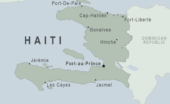Re Ian Bremmer 'Could third-party candidates upend the 2024 US election?' 3 April The current political movement in the USA…
Wednesday Night #1580
Written by Diana Thebaud Nicholson // June 13, 2012 // Judith Patterson, Wednesday Nights // 1 Comment
In light of all the developments on the Eurozone (however you want to spell it), Peter Berezin’s visit to discuss this Month’s Bank Credit Analyst: Dispatches From The Future: Europe, 2021 could not be more timely.
Peter introduces the topic with the following comment:
The Special Report in this month’s Bank Credit Analyst, written from the perspective of an observer in 2021 looking back at the events that transpired in Europe over the prior decade, tells the story of how a massive market crash in October of this year ultimately forced the ECB to put a ceiling on government borrowing yields
It is hard for us to keep up with the relevant news but here are a few items on the topic for your consideration.
A Sneak Peek at Tomorrow’s Europe
(Spiegel online) European leaders have long insisted they will do everything to save the euro. Now, a plan is forming that would dramatically change the architecture of the European Union. Brussels would be granted a significant say in national budgets and debt would be communalized. But the hurdles such a plan might face are high.
Eurozone break-up more disastrous than 2008 crisis, warns Kaushik Basu
(Press Trust of India) Chief economic advisor Kaushik Basu has warned that if the Eurozone breaks up, it will be more disastrous than the 2008 global financial crisis triggered by the fall of the Wall Street banks, from which the global economy is yet to recover.
… he warned that the impact on us will be indirect. “Europe being a major driver of growth and if it slows down, even if we don’t get a direct hit, the US is going to get hit immediately; China is going to get hit immediately. So the impact on us will come to us through our trading partners,” he said.
The Guardian’s files on the Eurozone crisis
Isn’t it nice of our community to keep offering the anti-capitalist demonstrators (let’s please forego the term ‘student’ protestors”) yet another target – in fact, the cream of targets. Montreal, having not yet recovered from the F-1 excitement, is now hosting the Forum économique international des Amériques – with its usual cast of hundreds of Who’s Who speakers and delegates who will listen in rapt attention to one another as they explore the apt theme of A global economy in transition. We do wonder about featuring Alan Greenspan’s photo on the conference home page – we remember that he was named by TIME one of 25 People to Blame for the Financial Crisis
At least one Wednesday Nighter (Kimon) has been favoured with a “prix d’ami” and will be able to report on the conclusions of the conference, along with his own views on the latest developments in Greece and the European crisis.
A propos the protests, we commend Kyle Matthews for The Global Delusions of the Quebec Protesters, published on the CIC OpenCanada site and in particular for this paragraph:
Pro-strike student leaders have channelled the Occupy message and publicly stated that they are standing up for the 99 per cent against the one per cent. For people suffering from drought and food insecurity in Niger and Somalia, Quebec’s “red squares” likely appear to belong to the top percentile. Those in the Middle East who are losing family members to Bashar al-Assad’s government in Syria or to the recent deadly violence that has ransacked the Arab world may be gravely offended that protesters have labelled the unrest in Quebec the “printemps érable” (maple spring). Comparisons have variously been made with the Indian independence movement, the anti-apartheid struggle in South Africa, the civil-rights movement in the United States, the fight against slavery in the American South, and the fight for women’s suffrage. But let’s be clear: Quebec is not Egypt. Charest is not Hosni Mubarak or Moammar Gadhafi. Quebec university students are not living the same reality as Black slaves in the American South.
While Europe, the world and those conference attendees worry about the crisis, (some) Canadians are more concerned currently with the Omnibus Budget Bill known as C-38. At the top of today’s news: the Speaker limits budget votes but long hours ahead for MPs — Budget-bill amendments will require at least 67 votes that could take up to 24 hours. For the policy wonks among us, there is the debate whether any of the amendment votes could be considered votes of confidence, and for the political junkies, there will be sleepless nights with CPAC.
Buried in the 400+ pages of the Bill are some 150 that focus on the emasculation of Canadian environmental protection (great timing given the latest oil spill in Alberta, not to mention on the eve of the opening of Rio+20).
For those who do not get excited about environment issues (yes, we know there are some of you still), perhaps the Wrecking of Canada’s Library and Archives will stir you.
Barring some unforeseen and extraordinary events, despite the opposition’s best efforts, the Bill will pass. Can we take some small comfort in Tim Harper’s view that the PM is spending political capital on omnibus budget bill?
Our concerns should pale by comparison with events in Syria, Burma (where things have looked so promising), Libya and Nigeria, but we will always be preoccupied by the devil we know (sort-of).
In conclusion, we would like to call your attention to the publication of Pierre Arbour’s excellent overview of The changing energy picture on the NSoA website, and to the news from Judith Patterson that the book Greenhouse Gases – Emission, Measurement and Management has been released online. Here is the link to the chapter that Judith contributed entitled “Exploitation of Unconventional Fossil Fuels: Enhanced Greenhouse Gas Emissions”. Congratulations, Judith!




One Comment on "Wednesday Night #1580"
Am sorry to miss Peter once more.I wonder how much his view has changed, if at all, since the written version. I expect all hell to break loose in Greece in the next few days. There is likely to be a run on the banks in anticipation of the election results, and the government is likely to freeze bank deposits in anticipation of the run on the banks. On Sunday, the Greeks have a choice of bad (see Kimon on austerity) or worse, see Peter on the breakdown.
Renewed greetings from Budapest.
Tony